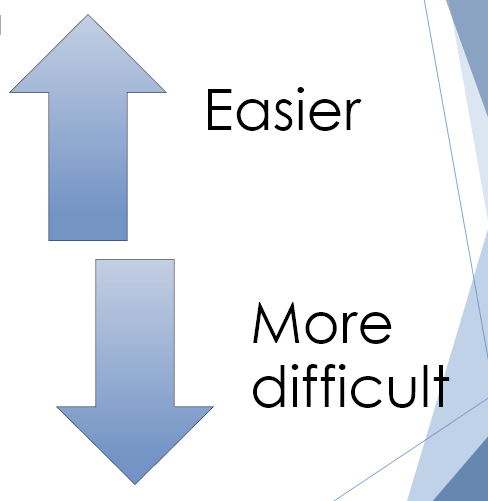The reason that we want to develop a culture of mission and evangelism in our churches is because that is God’s heart as revealed in the Great Commission and throughout Scripture. Jesus gave his church a clear mandate before he ascended to his Father.
And Jesus came and said to them, “All authority in heaven and on earth has been given to me. 19 Go therefore and make disciples of all nations, baptizing them in the name of the Father and of the Son and of the Holy Spirit, 20 teaching them to observe all that I have commanded you. And behold, I am with you always, to the end of the age.” Matthew 28:18-20 (ESV)
Until we adopt the great mission as our mission, we are missing the mark.
It is easy for the church to substitute any number of good things for the great commission. We can make great preaching and teaching our highest priority. If you ask average churchgoers why they like their churches, many will say that it is the great preaching. Many churches opt for community service, potlucks, worship, prayer, you name it… anything but sharing the gospel and making disciples.
A sure fire way to arouse the devil’s resistance, including that which comes from some church members, is to advocate for the centrality of the great commission.
Generally, we do not want to leave the comfortable confines of our church culture to pursue those who do not know Christ yet.
It is not enough to simply adopt the value of mission as a subset of the church’s activity and effort. It must become the engine that pulls the train. Otherwise the great commission will always be an option instead of the priority.
The Genesis command to be fruitful and multiply has not been rescinded.
The “Go” of the Great Commission
Most people want to stay put and enjoy the benefits of being part of a local church, which are many. The fellowship is wonderful. There is comfort in knowing that the people around us are like-minded servants of Jesus. It is great to be enveloped in a culture that fosters sound biblical thinking and values.
The result is that many Christians adopt a fortress mentality in which we try to wall out the world and its negative influences. In this scenario, mission devolves into inviting people to enter the fort and become part of the enclave.
But this is not obedience to the first part of the Great Commission, which is “Go.” Jesus told his disciples that he was sending us into the world.
Jesus said to them again, “Peace be with you. As the Father has sent me, even so I am sending you.” John 20:21 (ESV)
Going requires us to leave our comfort and safety zones and venture into the sometimes hostile world of those who do not know Christ.
For Abraham it meant leaving property, family, friends, culture, and familiar “gods” to serve the one true God in an unknown as yet place. It meant going by faith without the benefit of a well-designed plan or end game. All he had was the command to go coupled with a promise, and he went.
Jesus emphasized the “Go” when he taught the parable of the shepherd who left the 99 sheep to go after the lost one. He emphasized the “Go” when he prayed that the Father would send laborers into the harvest. Why then do we find it so difficult to go?
Going requires sacrifice, courage, faith, and a willingness to suffer and endure uncertainty, inevitable disappointment and setbacks, heartbreak, loss, and enormous challenges. Some of the people we “go” to will not appreciate it. Some will be hostile. However, some will be forever grateful, which makes it all worthwhile. More importantly, Jesus will be pleased and honored, and we will accrue eternal reward.
Jesus said, “Truly, I say to you, there is no one who has left house or brothers or sisters or mother or father or children or lands, for my sake and for the gospel, 30 who will not receive a hundredfold now in this time, houses and brothers and sisters and mothers and children and lands, with persecutions, and in the age to come eternal life. Mark 10:29-30 (ESV)
The going of mission is both the most rewarding thing you will ever do and the most challenging and costly.
That is why many of us shy away from obedience to the Great Commission. Jesus called it “falling away.”
And they have no root in themselves, but endure for a while; then, when tribulation or persecution arises on account of the word, immediately they fall away. Mark 4:17 (ESV)
If we fall away from obedience to the mission in times of peace, what will happen to us when persecution arrives? In fact, does not the proper preaching of the gospel and obedience to the Great Commission actually invite persecution? Paul wrote:
Indeed, all who desire to live a godly life in Christ Jesus will be persecuted, 2 Timothy 3:12 (ESV)
Perhaps the lack of persecution in our nation today betrays our lack of commitment to the Great Commission.
Making Disciples
The second part of the Great Commission is making disciples. There is a huge difference between a disciple and a mere churchgoer; although, disciples definitely have a strong commitment to the church.
Going to church meetings requires a relatively small commitment, but being a disciple means that we make the ultimate commitment to Christ and his mission.
So therefore, any one of you who does not renounce all that he has cannot be my disciple. Luke 14:33 (ESV)
Jesus violated just about every church growth principle in this passage. He comes across rather negatively, repeating the phrase, “cannot be my disciple,” three times. It is as if he were trying to weed out anyone who would not make the necessary commitment. The “leaven” of partial commitment is contagious, especially if leaders are infected with it. He did not tell us to try following him as best we can in the hope that gradually we might be able to become more committed. He encouraged us to become fully committed to him.
Although some move toward greater and greater commitment over a lifetime, the reverse is often the case. People can easily “backslide” from their initial devotion because the cost becomes greater than the price they are willing to pay.
Being a disciple means that we commit to Jesus the Lord as a person. We submit to his rule in our lives through obedience to his teachings and to the indwelling Holy Spirit. This will lead us to obedience to the Great Commission, which lays upon us the task of teaching others to be disciples who will also make disciples. Therefore, in order to create a missional culture in a local church, a commitment must be made by leaders and the flock to develop disciple-making disciples. In other words, we will prioritize duplicating themselves in the lives of others.
Churches that commit to making disciples will examine their values, priorities, and programs… everything… in light of whether or not it advances making disciples.
Disciple making is much more than giving lectures at church meetings. It involves one-on-one and one-on-few instruction and mentoring. It includes demonstrations of how to do ministry, followed by giving disciples the opportunity to put into practice what was learned with follow up instruction as needed.
The goal of discipleship is to produce a practitioner, not a mere theologian, churchgoer, or moral paragon.
Churches that commit to creating a missional culture will devote their energy, talent, time, and resources to pursuing the Great Commission.


